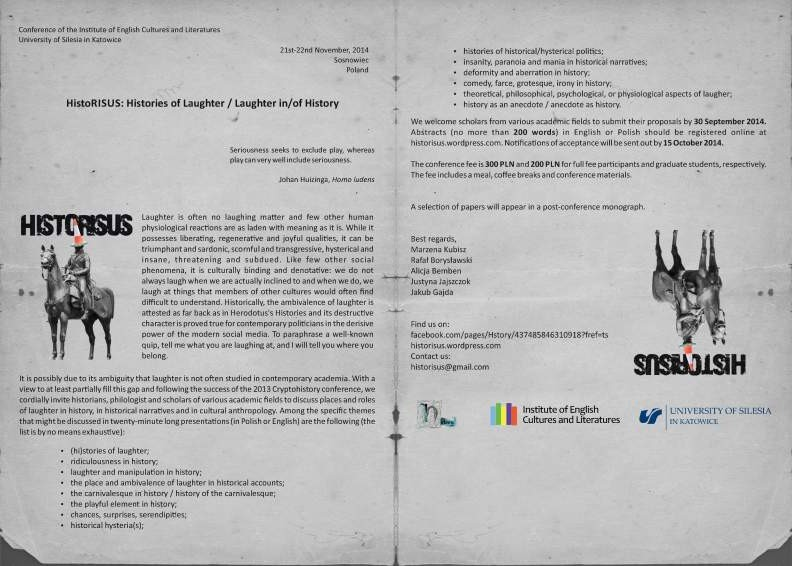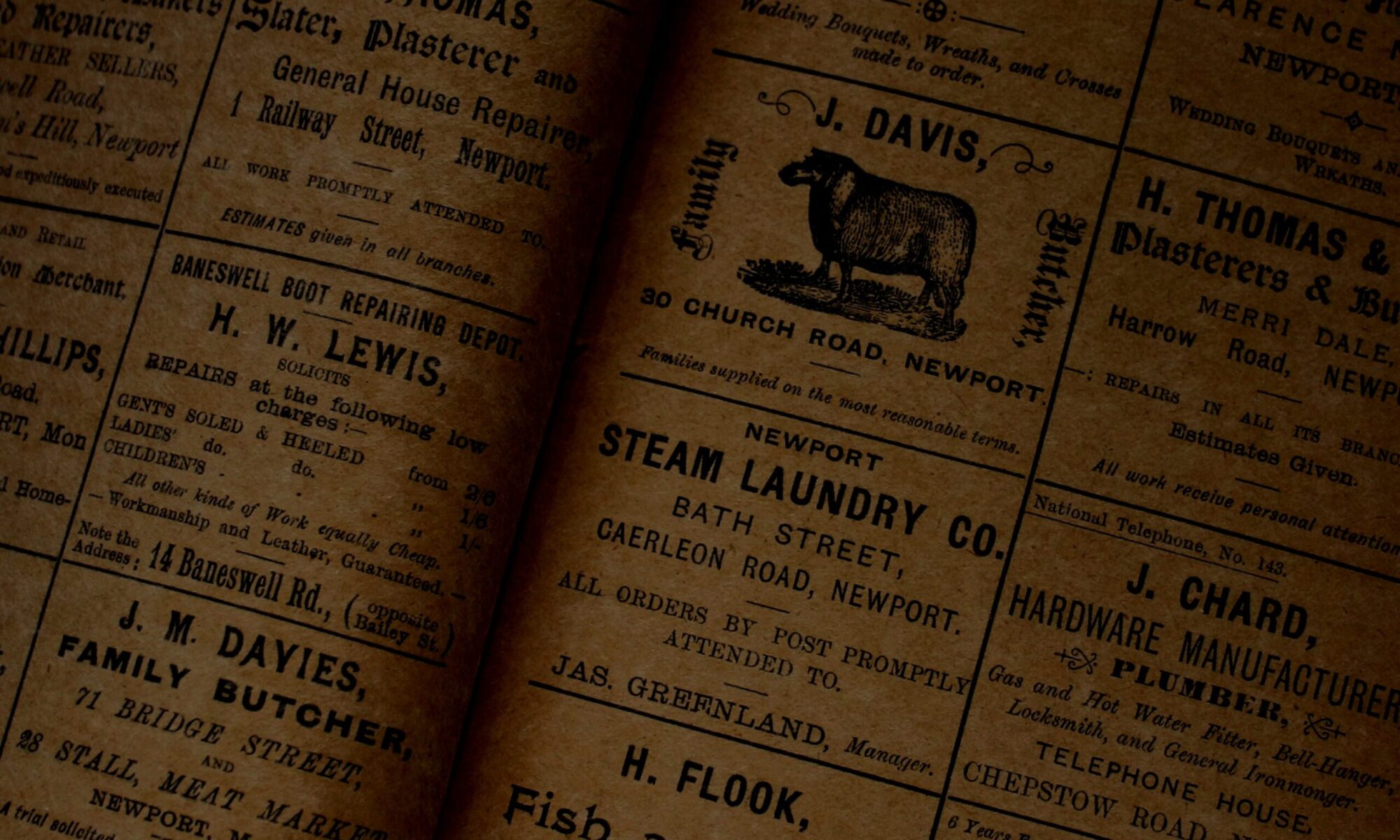November 21-22, 2014
Sosnowiec, Poland
Institute of English Cultures and Literatures
University of Silesia in Katowice
Seriousness seeks to exclude play, whereas play can very well include seriousness.
Johan Huizinga, Homo ludens.
Laughter is often no laughing matter and few other human physiological reactions are as laden with meaning as it is. While it possesses liberating, regenerative and joyful qualities, it can be triumphant and sardonic, scornful and transgressive, hysterical and insane, threatening and subdued. Like few other social phenomena, it is culturally binding and denotative: we do not always laugh when we are actually inclined to and when we do, we laugh at things that members of other cultures would often find difficult to understand. Historically, the ambivalence of laughter is attested as far back as in Herodotus’s Histories and its destructive character is proved true for contemporary politicians in the derisive power of the modern social media. To paraphrase a well-known quip, tell me what you are laughing at, and I will tell you where you belong.
It is possibly due to its ambiguity that laughter is not often studied in contemporary academia. With a view to at least partially fill this gap and following the success of the 2013 Cryptohistory conference, we cordially invite historians, philologist and scholars of various academic fields to discuss places and roles of laughter in history, in historical narratives and in cultural anthropology. Among the specific themes that might be discussed in twenty-minute long presentations (in Polish or English) are the following (the list is by no means exhaustive):
- (hi)stories of laughter;
- ridiculousness in history;
- laughter and manipulation in history;
- the place and ambivalence of laughter in historical accounts;
- the carnivalesque in history / history of the carnivalesque;
- the playful element in history;
- chances, surprises, serendipities;
- historical hysteria(s);
- histories of historical/hysterical politics;
- insanity, paranoia and mania in historical narratives;
- deformity and aberration in history;
- comedy, farce, grotesque, irony in history;
- theoretical, philosophical, psychological, or physiological aspects of laugher;
- history as an anecdote / anecdote as history.
We are delighted to announce that the conference’s keynote addresses will be presented by two eminent specialists on laughter: Prof. Mika Halila (University of Jyväskylä); and Prof. Thomas Scheff (University of California Santa Barbara).
The conference fee is 300 PLN and 200 PLN for full participants and students, respectively. The fee includes meals, coffee breaks and conference materials. The conference venue is the Department’s Council Room (SRW) in the Insititute of Literary Studies building in Sosnowiec: https://us.edu.pl/wydzial/wh/kandydat-wh/kierunki-studiow/filologia-angielska/.
Conference programme is available here.

